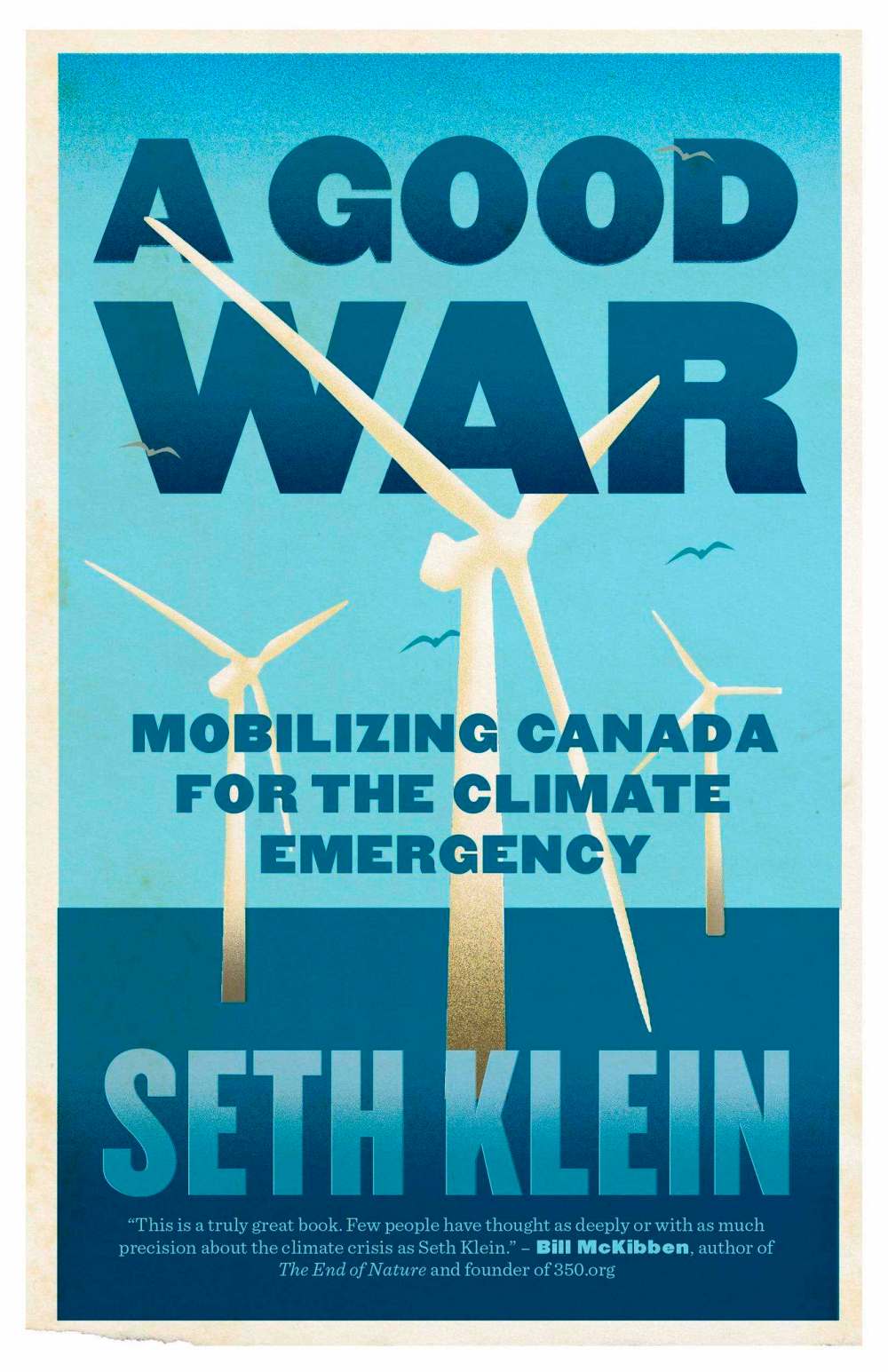Heavy artillery
Tackling climate change requires wartime mentality, Klein argues
Advertisement
Read this article for free:
or
Already have an account? Log in here »
To continue reading, please subscribe:
Monthly Digital Subscription
$0 for the first 4 weeks*
- Enjoy unlimited reading on winnipegfreepress.com
- Read the E-Edition, our digital replica newspaper
- Access News Break, our award-winning app
- Play interactive puzzles
*No charge for 4 weeks then price increases to the regular rate of $19.00 plus GST every four weeks. Offer available to new and qualified returning subscribers only. Cancel any time.
Monthly Digital Subscription
$4.75/week*
- Enjoy unlimited reading on winnipegfreepress.com
- Read the E-Edition, our digital replica newspaper
- Access News Break, our award-winning app
- Play interactive puzzles
*Billed as $19 plus GST every four weeks. Cancel any time.
To continue reading, please subscribe:
Add Free Press access to your Brandon Sun subscription for only an additional
$1 for the first 4 weeks*
*Your next subscription payment will increase by $1.00 and you will be charged $16.99 plus GST for four weeks. After four weeks, your payment will increase to $23.99 plus GST every four weeks.
Read unlimited articles for free today:
or
Already have an account? Log in here »
Hey there, time traveller!
This article was published 16/01/2021 (1757 days ago), so information in it may no longer be current.
The book is new, but the idea has circulated around environmental groups for years: If climate change was treated as a threat the same way conflicts were, enough political might could be rallied to address the problem.
In fact, this is the underlying argument for climate change policy proposals like the Green New Deal in the United States. In A Good War author Seth Klein takes this concept and uses the Canadian context to explain how the country could use lessons from the Second World War and apply them to the fight against climate change.
Klein is a public policy writer and researcher, and served as the founding director of the Canadian Centre for Policy Alternatives in B.C. (Klein’s sister, Naomi Klein, is a climate activist and has published books such as This Changes Everything and On Fire: The Burning Case for A Green New Deal.)
In his introduction, Klein writes that he is the last person who ever intended to write a book about war, having been born to pacifist parents who came to Canada as conscientious objectors to the Vietnam War. But he makes the case that there is no other example in modern history that offers a framework for how to rally the political will, economic and industrial resources as well as the support of the people to tackle climate change.
“The wartime example is also informative because the climate crisis, like the Second World War, can be confronted only by all of us together,” Klein writes. “We are told to fix this ourselves as consumers or to embrace the capacity of the market to develop and adopt new technologies if given the right price signals and incentives. Neither of these approaches can or will work on their own.”

Klein uses historical examples from the Second World War to outline a number of parallels between the two challenges, pointing out that the issues we face now are not only common but predictable. This begins with the hesitancy to confront the threat head-on. Before the war started, then-Canadian prime minister William Lyon Mackenzie King originally tried to dismiss Adolf Hitler as “no serious danger” and even once Canada committed to the war effort, leadership was indecisive on the prospect of deploying troops. Today, climate change faces denialism at every turn in various forms.
One might think that Klein is taking aim at modern Conservative politicians, but they’re far from alone, with Prime Minister Justin Trudeau, former Alberta premier Rachel Notley and B.C. Premier John Horgan all named as complicit in the problem at hand. He accuses them of opting for policies that are “considered politically possible” but fall short of what is needed.
Klein writes with an attitude of frustration with the status quo, but also of deep hope that things can and will change. He challenges conventional economic thinking, as well as the institutions that perpetuate inequality.
But the bulk of Klein’s argument is outlined in his 63-page chapter on how economic resources could be remodeled in short order to address the climate crisis and lead Canada to be a leader in a net-zero world.
The book is topical, weaving in 2019 public opinion polling data. It’s accessible and not bogged down by technical policy or scientific jargon. Klein explains the thinking he is fighting against, and in the end is convincing in his argument for why a wartime effort is needed to address climate change. Unfortunately, it still comes off as idealistic, if only because of all of the obstacles he names outright.
But perhaps a little idealism is warranted in the face of an existential threat.
Sarah Lawrynuik is the Winnipeg Free Press’ climate change reporter.


